Gedonia
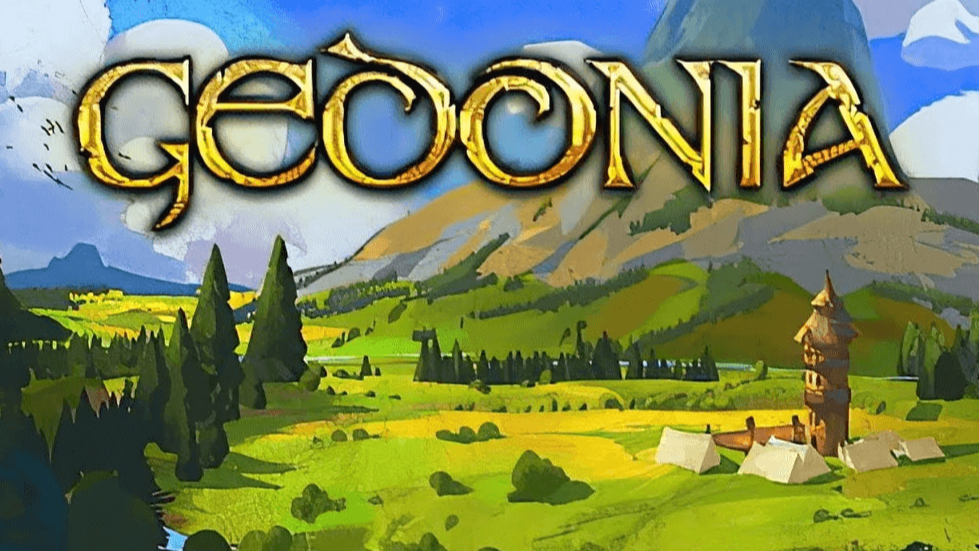
Gedonia - World of WarCraft Offline
There are some games that you can't look at without tears. Such works are especially painful if they are popular for some reason. Gedonia is just one of those games that can't make the right first impression, can't sell itself from the first minute, can't get sucked into the immersive whirlpool of activity, doesn't even try to push you into a story swamp of events. But it's worth getting used to the unimpressive picture and forgiving the flaws... ...As you immediately realize that you're facing one of the biggest open worlds of our time. But does Gedonia suffer from "FarCry syndrome"?
Impressive ambitions
Gedonia is an indie game from a mid-range single-player developer with not the tightest of wallets. Single-player games are commonplace in the indie industry. But it's one thing when one person creates a pixel platformer with a single, but well-tuned mechanic. It's another thing to have only one person who wants to take over the World of WarCraft, Wither or even The Elder Scrolls V: Skyrim.
As its creator Oleg Kazakov says about Gedonia: "This is my debut. A kind of first The Witcher, a test of my pen. That statement seems self-righteous until you start to get involved in Gedonia.
The game starts off blandly: with a conversation scene between the protagonist and his uncle. Echoing the precepts of the Millennium Hero, the protagonist has no parents, and the role of the local Mentor is played not by the wise Obi-Wan Kenobi, but by the very uncle, who also turns out to be not the main character's relative. He does not give the protagonist any lightsaber, but only says: "You need to go up the mountain, well, everything will be there.
The protagonist, not at all doubting his uncle's words, decides to embark on the adventure. The first stop is a mysterious cave. There the hero sees the ghosts of two warriors, sees the prophecy of the great battle of Good and Evil. Of course, the protagonist is the Chosen One, and there's no way around it...
First impressions are deceptive
The absolutely idiotic plot setup in a game that positions itself as a classic RPG in an open world is the first thing that repulses from Gedonia at first. One gets the impression that Oleg did not work on the plot at all, and purely copied the plot of ancient stories, outdated in the IIX century BC...
...But first impressions are deceptive. The first hint of a non-trivial approach to the quests can be noted almost immediately. After appearing in the starting location, we begin our difficult journey. We go to the south and notice the chained beggar. After talking to Prometheus the bandit, we find out that the local wizard chained him for stealing food. Here we get a glimpse of something strange...
...The bandit isn't just chained in magic chains, the poor guy is forever struck by lightning, but magic regenerates his wounded body, preventing the martyr from dying - eternal torture. The bandit asks for a quick death. Here is the protagonist's answer:
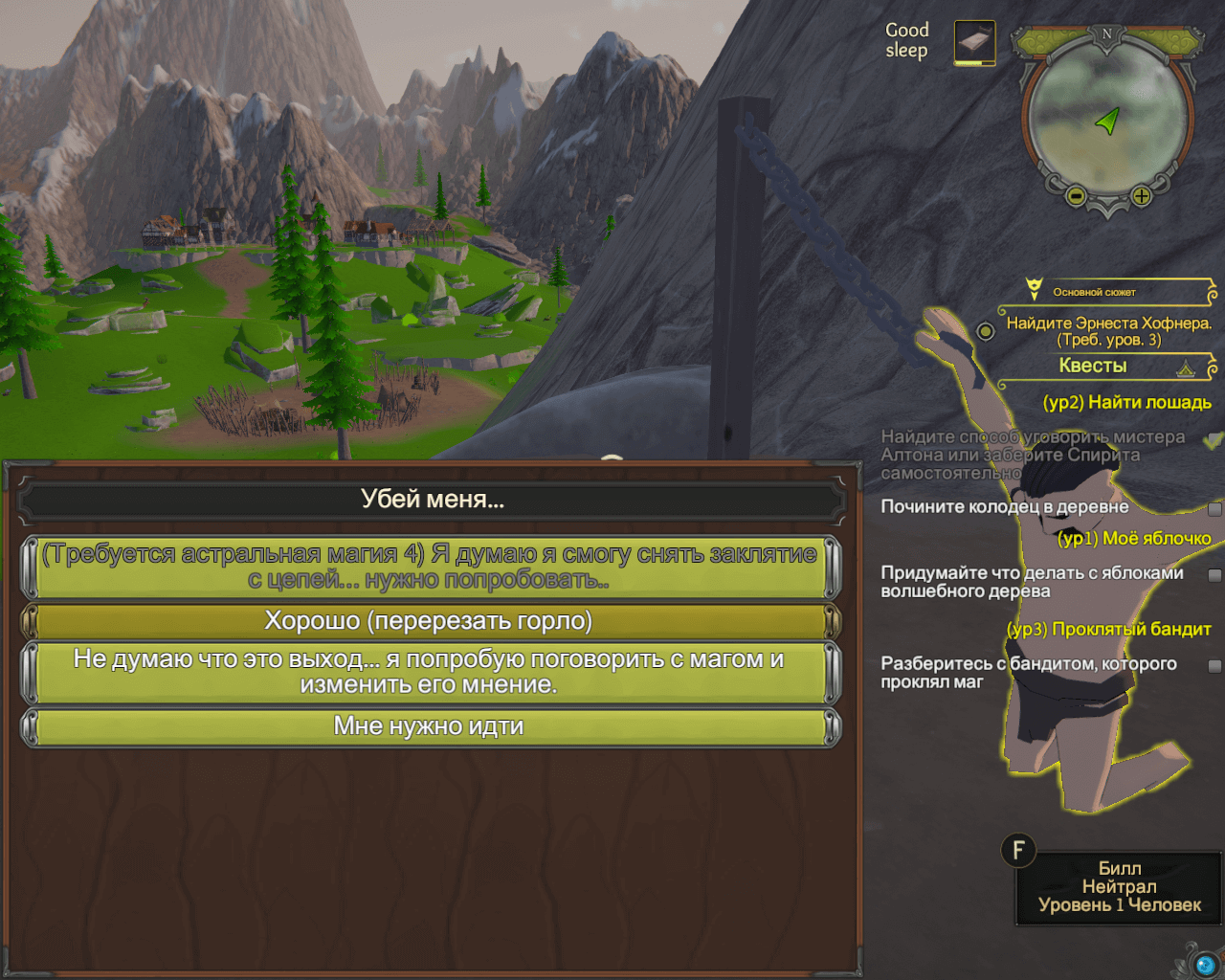
But there is no way to cut his throat. The wizard has bewitched the bandit and made him essentially immortal. To free the sufferer, the protagonist heads to the sadistic wizard's tower. The wizard turns out to be not as crazy as expected. When asked to free the bandit, the latter replies that the chained man lied to us. It turns out that the bandit broke into the wizard's tower, cut off someone's head, disrupted and stole something far more valuable than a handful of food - the bandit stole a valuable scroll...
...We return to the bandit, accuse him of lying, and refuse to release him without returning the scroll. The bandit admits that he tried to trick us and tells us the coordinates of the scroll.
Now we have a choice: forgive the bandit, return the scroll to the wizard or pocket the scroll for ourselves. But if the player pumped up Magic by 4 points when creating his character - you can release the bandit without finding out about his deception...
The example above is a common secondary quest in Gedonia, similar variant forks dozens or even hundreds. The main story quest also eventually begins to veer away from the predictable leitmotif. It goes so far that it becomes impossible to predict the subsequent adventures.
...Here we are chopping a tree with an axe without taking the bow and arrow out of our hands:
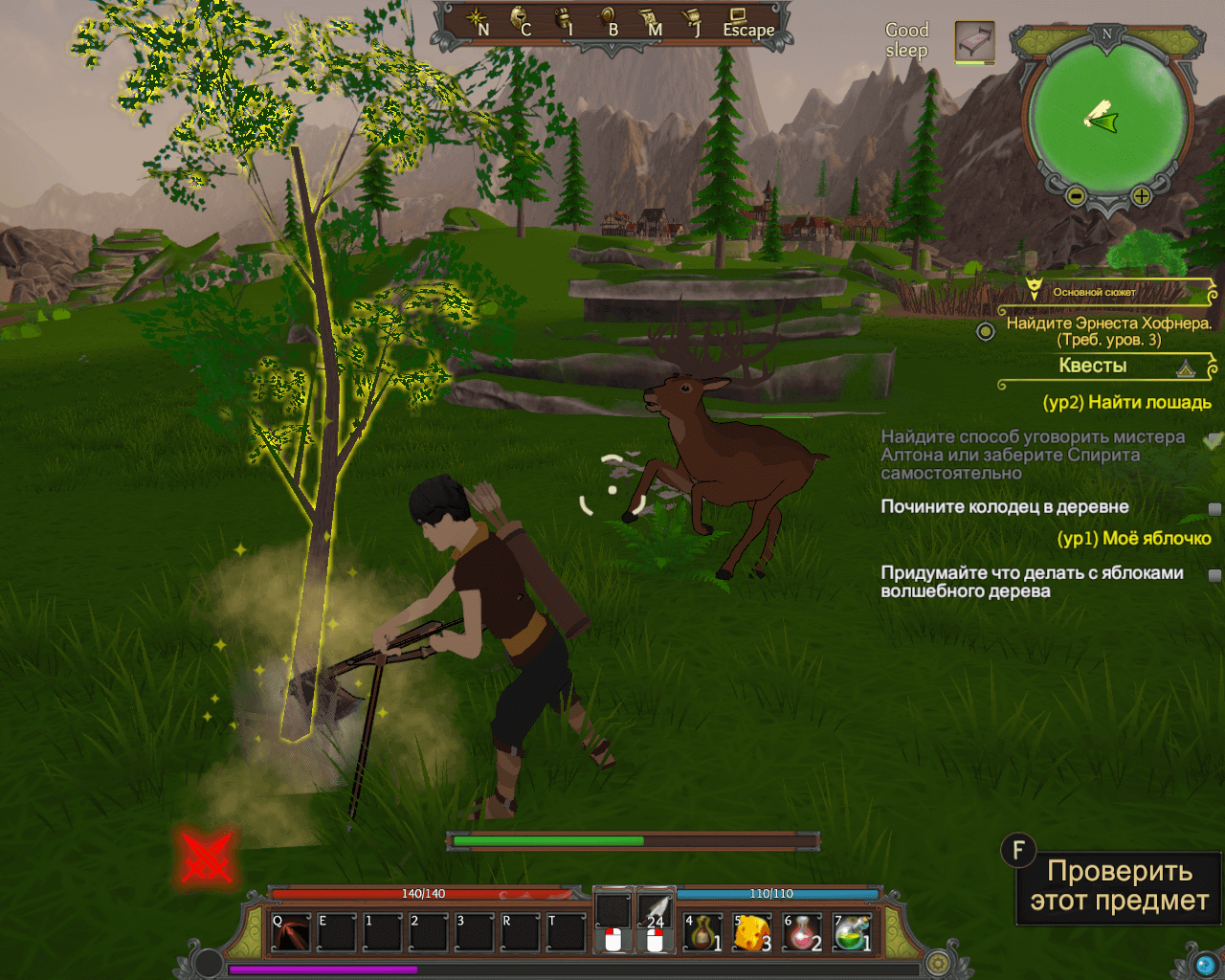
...And here we are already getting used to the first location, collecting loot and little by little learning the laws of this world. But as soon as you open the map...
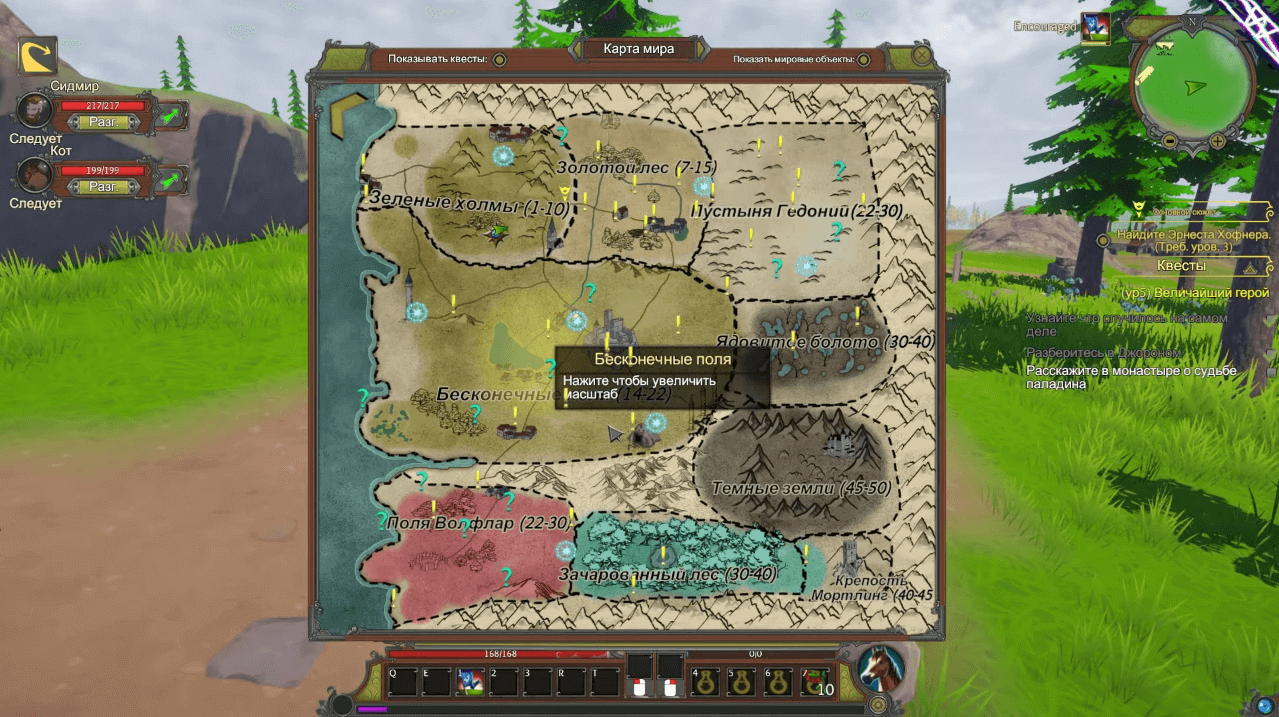
...comes the realization that in two hours of play you've covered only 10% of the terrain. You realize that the locations are divided into levels like in MMORPG. That each location is full of activities: from the events a la "Bring 100 wood and get 150 experience and 100 gold" to the dead dragon, around which the impostor swirls, taking credit for other people's services. And then you realize that you haven't opened a map, but a mini-map. It turns out that the world of Gedonia looks like this:
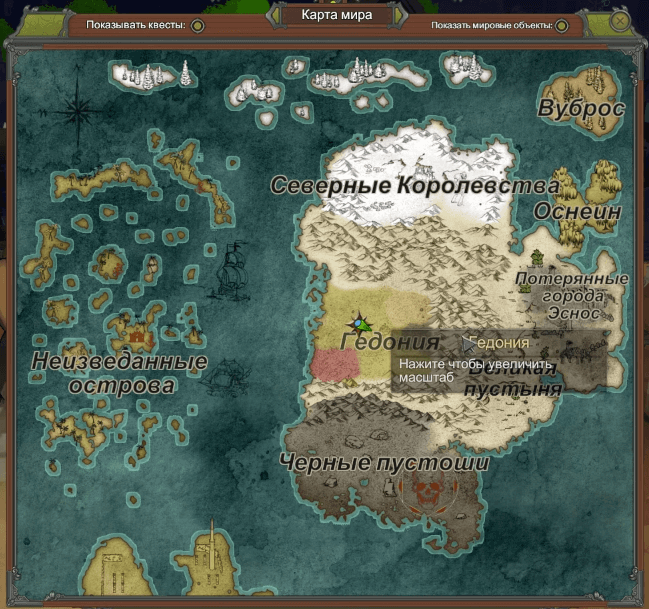
At this point you realize that Hedonia is only 20% of one of the four continents. Each land has its own fauna, its own flora. Every continent has something going on, every continent has its own history, sometimes not a happy one...
...and all of this is just the background of the world of Gedonia--that's what's to be explored. But how to revel in this process?
MMORPG, but without the ills of the genre.
What do you often criticize MMORPGs for? For the repetitive dailies; for being tied to the daily online - didn't enter the game, lost daily rewards, failed guild; for the fact that MMORPG - a bottomless barrel of time; for the fact that the game becomes a second job, no less responsibilities in it...
...All of this is absent in Gedonia - no online. The world revolves around the protagonist, you won't fall behind competitors in the pumping-up, you won't let your friends down by not showing up for a raid - too. At the same time there are all the elements of a classic MMORPG. Starting with a standard set of character pumping archetypes, ending with crafting and riding animals:
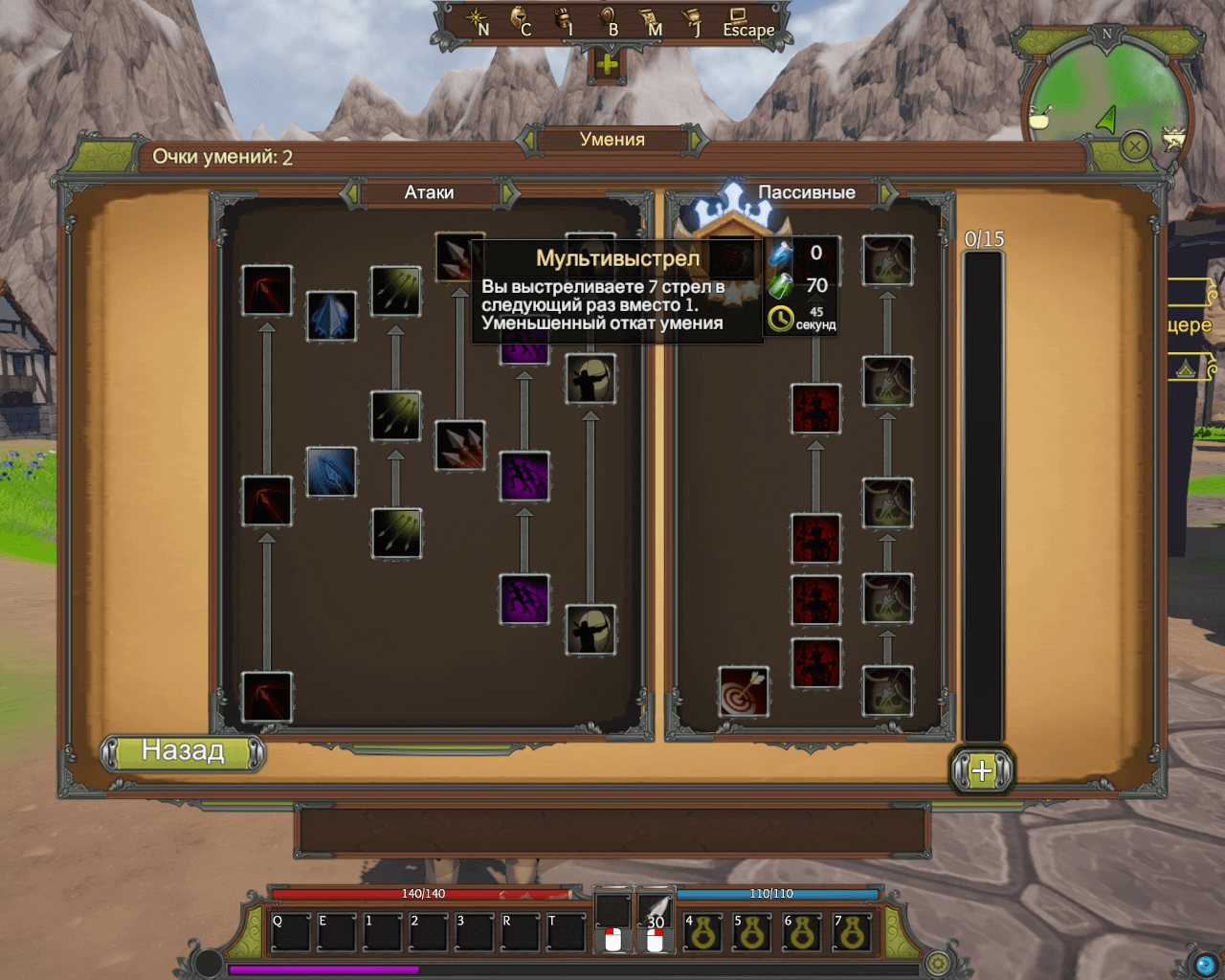
The skill progression branch refers back to King Leach when this version of WoW was still official. The only thing Gedonia is inferior in is the depth of the role-playing system. Often in role-playing games, players collect items so that some items enhance others. In Gedonia, however, progress is often limited to the linear accumulation of numbers. There are no unusual combinations of active and passive skills, and the game does not encourage experimentation, pushing for linear progression:
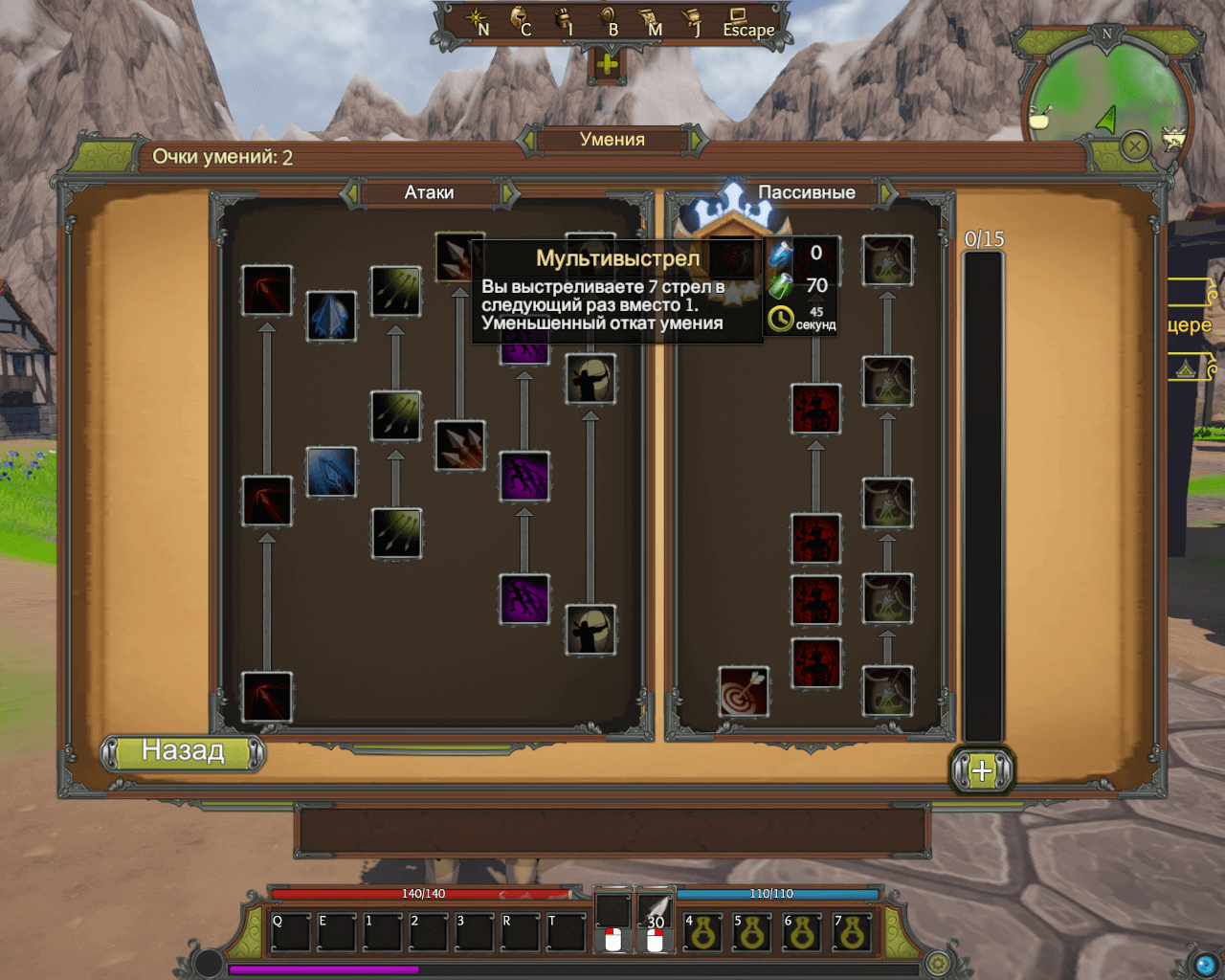
After learning alchemy, you can brew a Potion of Oblivion. It resets all of your skill points. However, the way to brew potions takes more than one hour, so it's not worth pumping everything by one. If you've had experience in MMORPGs, you'll find Gedonia to be child's play: most mechanics have been simplified for the benefit of newcomers, and items and weapons have no level requirements. Even the trading menu evokes feelings of nostalgia...
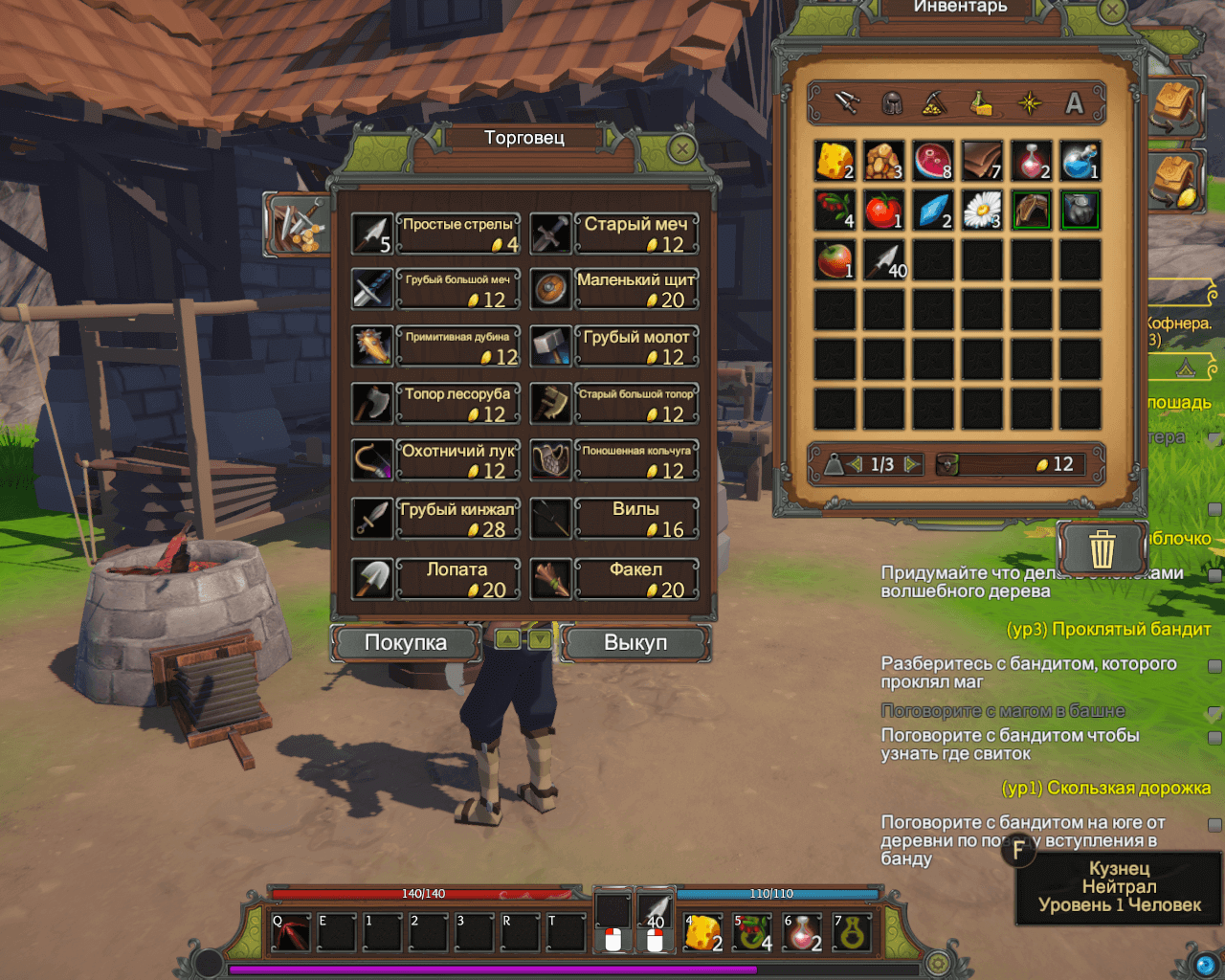
Is Gedonia worth buying?
If you were once addicted to the game, killed the Lich dozens of times a month, and made it to the top of the server, Gedonia will bring back painful memories for you. Triggers and flashbacks from Azeroth are assured.
Gedonia was created by man for man. Oleg Kazakov carefully removed all the RPG elements, added today's popular (building houses) and crammed it all into a single-player game with no subscription fees and time-based restriction.
However, not everything is so rosy. Gedonia has only been created for two years - which is an extremely short period of time for a project of this scale, such games are created in eight years. The result - the crooked animations, a lot of bugs, some sterile open world and sometimes very naive story arcs. Keep in mind that Gedonia might as well be called the proverbial indie game: bold ideas, large scale, people's product. On the other side are unimpressive graphics and low-budget in everything. Are you ready to forgive the simplicity and unsightliness for the sake of depth? If so, consider getting Gedonia on Steam. It's only $5 there.
